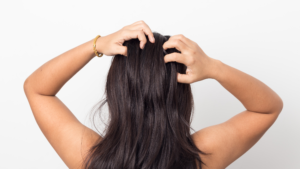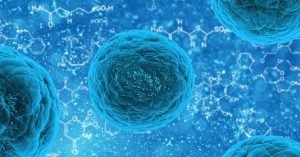The passing of Halal Product Assurance Law in 2014 has garnered interest for Halal products even for Non-Muslim consumers which account for 30% of Halal cosmetic sales in 2016. Furthermore, due to the growing awareness of Non-Muslim for less harmful skincare products, Halal cosmetic industries are expected to expand. By 2024, Global Halal Beauty Market is expected to be worth USD$21.4 billion and estimated to grow by 15% each year. With the growing interest in Halal products, it is important to ensure that the core standards of Halal products are met. However, there are challenges involved in developing Halal products, especially in Indonesia.The New Halal legislation in Indonesia:
- targets Halal products quality
- is administered by Badan Penanggulangan Jaminan Produk Halal (BPJPH) or the Halal Product Assurance Agency (BPJPH), involving MUI and the Halal Audit Institutions (LPH).
- requires all consumers’ products sold in Indonesia to have MUI Halal certification by Oct 2019. The registration via other bodies are not acknowledged.
- enforces administrative penalties after three years grace period upon non-compliance.
This implementation is likely to cause the following challenges to the manufacturer:
- Extra financial cost: Each Halal Certification will cost about $1030, NOT inclusive of Audits.
- Extra Time consuming: Currently BPJPH is severely understaffed, which means that application for Halal certification will be slow. MUI only process up to 6000 certification annually. Additionally, for products to be inline with Islamic principle, the entire process needs to be scrutinised.
- Search for Limited Halal certified ingredients: For non-halal certified ingredients, many documents have to be submitted to MUI.
increase the cost for Halal Certification. Additionally, more time and man power have to be invested to meet the stricter Halal certification requirements. Since Halal cosmetics is a huge market in Indonesia and Asia, we could not avoid Halal Certification for long. Hence, the cheapest and quickest solution now is to seek for products which are already MUI Halal Certified. If you are one of the personal care industries affecting by the new regulation, we have solution for you.MahaChem has various Halal Certified Products. One of our key partners, KCI, is a leading Specialty Chemicals Manufacturer producing wide range of Personal Care products.
The company is:
- Highly committed to Eco-friendly products
- Manufacturing personal care chemicals which are mostly Halal Certified.
Their certified products can save your efforts and money required for launching the products in Southeast Asian markets. The table drawn below consists of some of the Halal Certified ingredients from KCI:
| PRODUCTS | FUNCTION | INCI NAME |
|---|---|---|
| Hydrogel PFKC/ Oil PFKC* | Rheology Modifier | Glycerin and Glyceryl Arcrylate/Acrylic AcidCopolymer |
| INN 100KC | Emollient | Isononyl Isononanoate |
| CTAC 30KC | Cationic Surfactant | Cetrimonium Chloride |
| BTAC P7580KC | Cationic Surfactant | Behentrimonium Chloride |
| STAC 808KC | Cationic Surfactant | Steatrimonium Chloride |
| Guarquat NT500KC | Conditioning agent | Guar Hydroxypropyl trimonium Chloride |
| Guarquat C140KC | Conditioning agent | Guar Hydroxypropyl trimonium Chloride |
| Polyquta 400KC | Conditioning agent | Polyquaternium-10 |
| NEOquta 400KC | Conditioning agent | Polyquaternium-10 |
| Multicare MP40KC | Rheology Modifier | Dicaprylyl Ether and Sodium Polyacryldimethyltaurate and Polyglyceryl 10 Dilaurate |
| Multicare AM50KC-S | Rheology Modifier | Polyacrylamide & C 13-14isoparaffin & laureth-7 |
| Multicare DA40KC | Rheology Modifier | Polyquaternium 73 and Dicapryl ether andPolyglyceryl 10 dilaurate |
*Find out more about our Rheology Modifier here: Excellent Rheology Modifiers: Multicare & Hydrojel Series
While other products are still under ongoing registration, please kindly stay tune for more Halal certified products to come!If you are interested in expanding your market to Indonesia or developing Halal beauty products, please contact us now.



